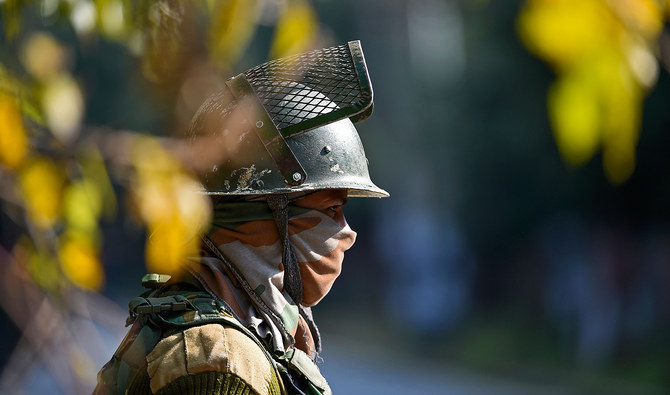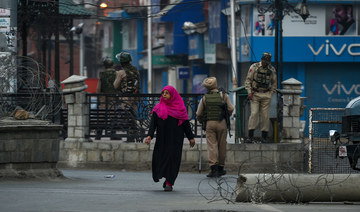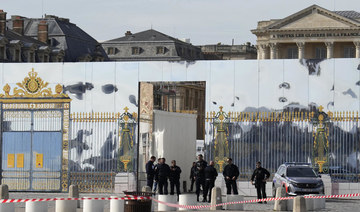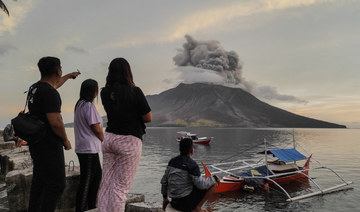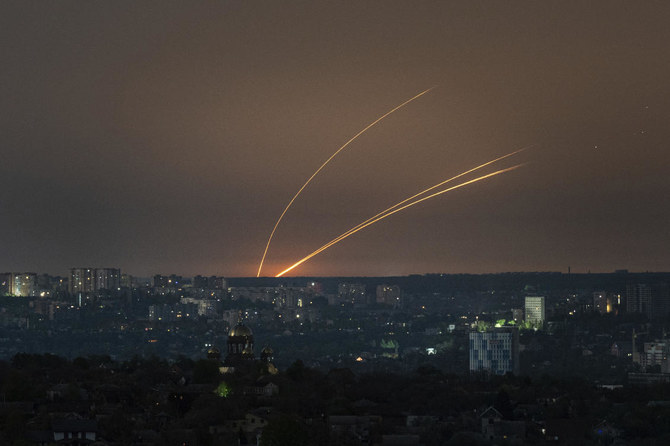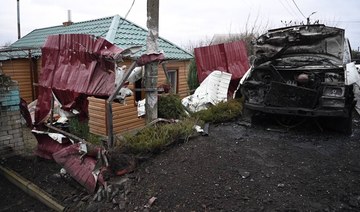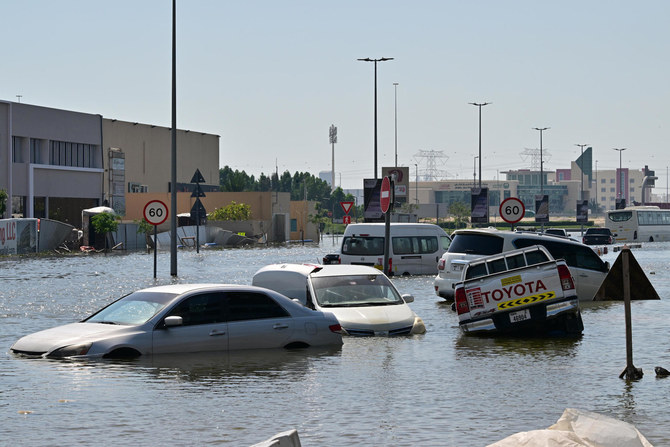NEW DELHI: India’s disputed Jammu and Kashmir region officially ceased to be a state on Thursday when the territory was divided into two union territories: Ladakh, and Jammu and Kashmir.
This is the first time in independent India’s history that the status of a state has been downgraded in this way. A union territory is a centrally administered unit ruled by a lieutenant governor, who is the representative of New Delhi. The local legislative assembly has limited political powers and must always defer to his will.
On August 5, authorities in New Delhi repealed Article 370 of the constitution, which granted a special autonomous status to Jammu and Kashmir. It also split the state into the two union territories, which came into force on Thursday.
Indian Administrative Service officer Radha Krishna Mathur was sworn in as the first lieutenant governor of Buddhist dominated Ladakh on Thursday. Girish Chandra Murmu, an IAS officer known as a close ally of Prime Minister Narendra Modi, was sworn in as lieutenant governor of Jammu and Kashmir.
Ladakh will not have a legislative assembly. Jammu and Kashmir, which used to have a two-tier system — the Legislative Assembly (lower house) and Legislative Council (upper house) — will now have a single chamber with no authority over law and order, which will be controlled by the lieutenant governor. Only Indian flags will fly over government buildings, with the flag of Kashmir consigned to the pages of history.
“Jammu and Kashmir and Ladakh are taking a step towards a new future today,” said Modi during a political rally in his home state of Gujarat to mark the anniversary of the birth of Sardar Vallabhbhai Patel, India’s first home minister.
“Article 370 only gave separatism and terrorism to Jammu and Kashmir. It was the only place in the country where Article 370 was present, where in the past three decades more than 40,000 people were killed and many mothers lost their sons due to terrorism. Now this wall of Article 370 has been demolished.”
He added: “The government does not want to draw territorial lines in Jammu and Kashmir but wants to build a strong link of faith, and focus on the emotional, economic and constitutional integration of the entire country.”
Harsh Dev Singh of the Jammu-based National Panthers Party, said: “The division of the state is an insult to the sentiments of the people of Jammu and Kashmir. New Delhi has hurt the sentiments and dignity of the people.
“This was a state that used to have its own prime minister — it has now been handed over to a junior officer. This is the biggest affront to the feelings of the people of not only the valley, but also Jammu.
“It is an absurd argument to suggest that union territory status will lead to further development of the region. Modi’s government could not carry out any development in the past five years when they were part of the government in Srinagar; now by demoting the political status of the state they talk of development. It sounds strange.”
He added: “With the role of the mainstream political parties getting limited it’s the people of the state who are being disempowered. No doubt the people of the valley are very upset but the people of Jammu are more angry because the Hindu Dogra ruler of Kashmir belonged to Jammu.
“Normalcy in the state is possible only when the people and political parties of the state are taken into confidence.”
Ravinder Kumar Sharma, a member of the Congress Party from Jammu, said: “The people of Jammu and Kashmir have been disempowered, and the manner in which the Indian government has taken such a crucial decision about the fate of the state will further destabilize the region.”
He added that the government’s actions have further alienated people in the valley and given credence to separatist forces.
“In three months, we have not been able to restore normalcy,” said Anuradha Bhasin Jamwal, executive editor of the Kashmir Times. “The lock down in the valley continues and people are still detained. In a situation where there is complete uncertainty, it is difficult to believe that anything will change by converting the state into union territories.
“It’s not about the change in the status of the state, it’s about the restoration of complete democratic norms and how the government is going to address the anxiety of the people. The very foundation of the change ushered in the state is highly undemocratic. How you expect that democracy will thrive in this situation? The future to me looks bleak, unless the government has some magic lamp it can use.”



